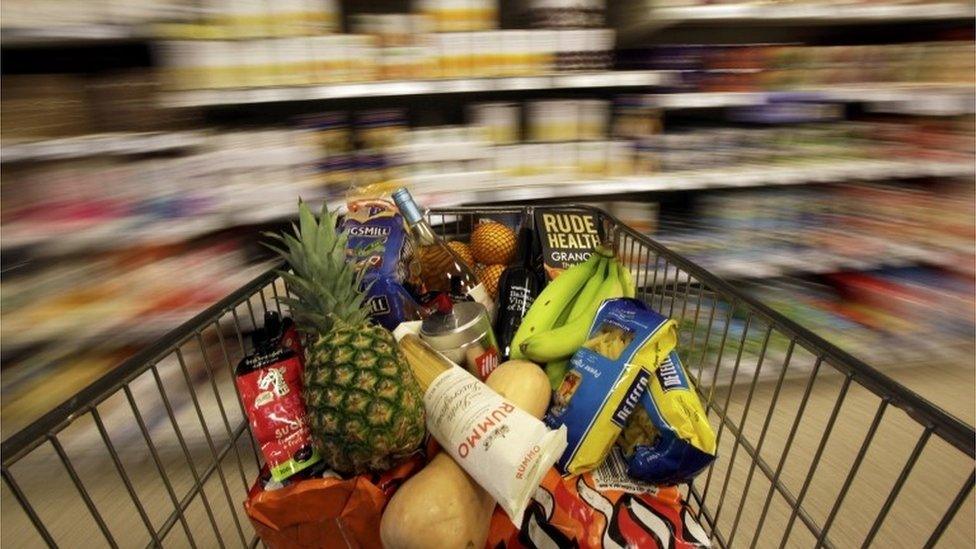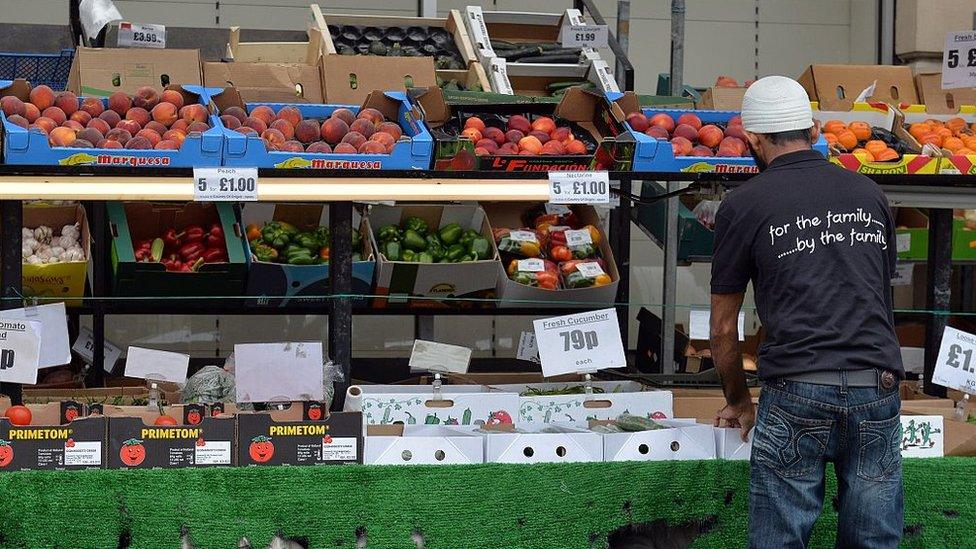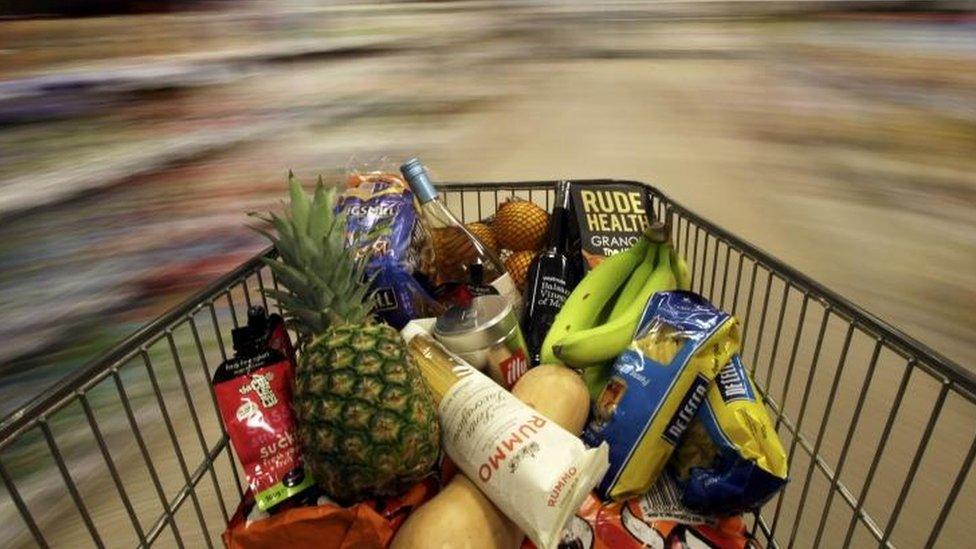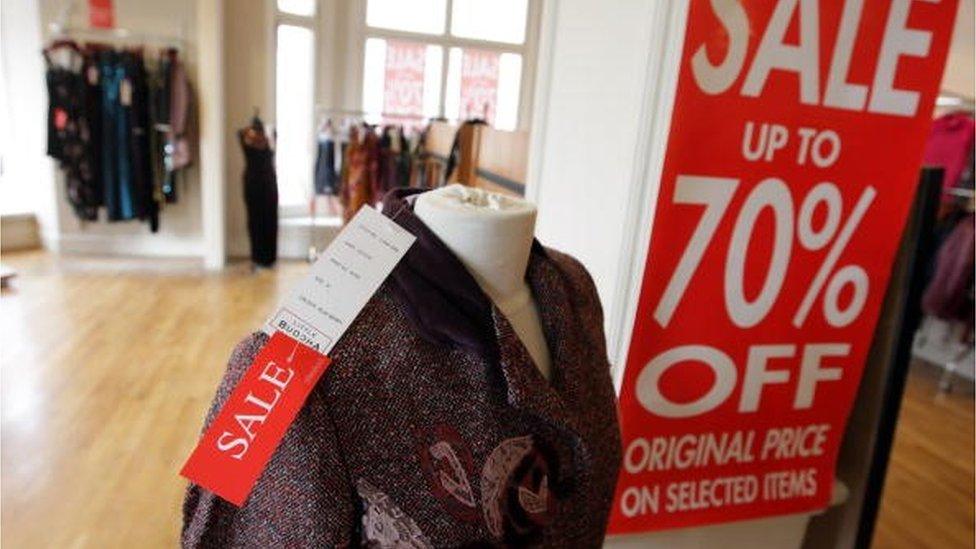Food prices in 'biggest fall' for a year in June
- Published

Food prices saw their biggest fall for over a year last month as prices continued to drop, a survey suggests.
Grocery prices fell 0.8% in June, extending May's 0.3% fall and marking the deepest deflation in food for over a year, according to the British Retail Consortium-Nielsen Shop Price Index.
Shop prices overall, including non-food items, fell 2% year-on-year, marking the 38th consecutive month of decline.
The BRC said it was an "extraordinary run of deflation".
However, the retail trade body said it eventually expected prices to rise again.
"The time it takes for any price increases to make a reappearance will depend on a combination of factors including the future value of the pound, commodity prices and any eventual impact of the Brexit vote on input costs," said BRC chief executive Helen Dickinson.
The shop price index reflects the period ahead of the referendum vote from 6 to 10 June.
The sharp fall in the pound, which has plunged about 11% against the US dollar since the outcome of the EU referendum vote, has led several analysts to warn that the price of groceries could rise longer term.
Some 40% of food consumed in the UK is imported meaning any long-term shift in exchange rates could lead to higher food costs.
But Ms Dickinson said the continuing fierce competition between retailers meant hiking prices still "may not be viable for some retailers".
The British Retail Consortium-Nielsen Shop Price Index comes a week after research firm Kantar Worldpanel reported like-for-like grocery prices fell 1.4% in the 12 weeks to 19 June compared with a year earlier, marking the 23rd consecutive period in which prices have fallen.
Kantar's head of retail and consumer insight, Fraser McKevitt, said he did not expect the immediate economic uncertainty following the outcome of the EU referendum to cause "a substantial fall in grocery volumes".
"Historically, higher prices have led to consumers looking for less expensive alternatives such as own-label products, seeking out brands on promotion or visiting cheaper retailers," he said.
Falling shop prices reflect weak inflation in the wider UK economy. Annual inflation was 0.3% in May according to the Office for National Statistics, unchanged from April.
- Published21 June 2016

- Published28 June 2016

- Published14 June 2016
